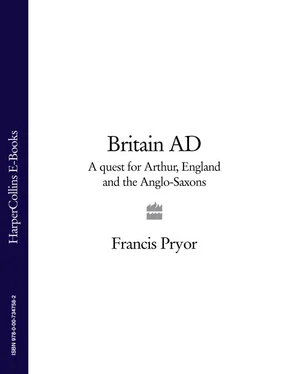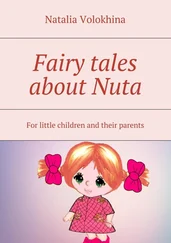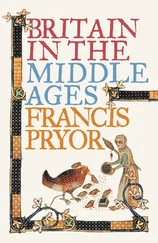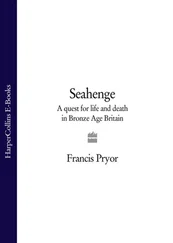Archaeologists dealing with the period covered by Britain ad have also fallen, too often, into a mechanistic explanation of change and the denial of free will to the so-called ‘Anglo-Saxons’. But there is an important difference between the so-called ‘Dark Ages’ and prehistory, because now we are no longer wholly reliant on archaeology. In the present book I have tried to reconcile the contrasting views of ancient life provided by historians and archaeologists; and I conclude that in many significant respects the two are irreconcilable. I do not believe that this matters a great deal, because the authors of the only ‘historical’ sources available were not writing history at all: they were writing polemic, with a well-defined audience and purpose. I shall have more to say on that in Chapters 1 and 2.
In this book I will suggest that in the fifth and sixth centuries AD there are, if anything, rather too many faces: unreliable ancient authors, semi-mythical leaders and one impossible hero called Arthur. These faces have been dominant for far too long, and the voices that have attended them—sometimes their own, more often those of their modern academic supporters—have tended to drown out the quieter, subtler, and to me far more persuasive, stirrings of archaeology. In this book I have made a conscious effort to redress this imbalance.
I have tried to write about more than just the lives of people in the past. I have attempted to make my work relevant to the world around us today. If archaeology is only about antiquity it will soon wither and die, as a pointless, self-serving pursuit. This trilogy addresses themes that matter in the twenty-first century: questions about ideology, the role of religion in daily life, problems of identity and sense of place. In the present book I have also grasped the nettle of what it means to be British—but I do not offer solutions, because there aren’t any. I also avoid the easy way out of saying that there is no such thing as Britishness. Popular definitions of Britishness certainly vary, but that does not invalidate them. Some of them may be jingoistic, or worse, but I believe that a sense of community, however one chooses to define that term, is something worth holding on to in a crowded world that is growing increasingly self-centred.
Finally, I write about something that is surely quintessentially British, namely the keeping up of appearances. Over the years I have become increasingly convinced that the British use their past as a surface coating, a facing, to prevent them from thinking about who they really are as individuals. You can see a rather extreme expression of this tendency if you visit Glastonbury. Anyone who stood outside the Abbey Gates with a loudhailer and proclaimed that Arthur never existed, and that Camelot and Avalon were not intended to be taken as literal truth, would be jeered to the echo, before the rocks began to fly.
Much of the Arthurian New Age ‘philosophy’ is actually quite closely linked to early-twentieth-century views on racial purity, in which people like the Celts were seen to have an actual, ethnic identity. In today’s New Age, the ancient Celt is seen to possess mystical virtues that your average Irish Dark Age warlord would have found less than attractive.Half-baked, wishy-washymysticism would not have appealed to him.
In the first two chapters of this book we will see how Druidism, Arthur and what is called the ‘Celtic Twilight’ are largely modern inventions. This already grossly distorted view of early British history has been further elaborated by the New Agers. I wouldn’t object to this—after all, everyone is free to believe what they choose—were it not for the fact that I detect whiffs of quasi-racism in much of this muddled thinking. I get very wary when I hear talk of how wonderful the Celts were. The unlamented Aryans lurk not far below the Arthurian surface, in legends such as Tristan and Yseult; if, that is, one treats these stories as anything other than fiction, pure and simple.
In Seahenge I played down the full horror of some of the events surrounding the lifting of the timbers from the beach at Holme-nextthe-Sea in Norfolk, as I was writing principally about archaeology, and did not want to chase what I then regarded as a red herring. 3It was also both too close and too unpleasant even to attempt to write about with any degree of objectivity. Readers may however recall that the unfortunate archaeologists on the beach had to face the wrath of neo-Pagans and Druids, which they did with dignity and not a little courage. I remember how one of the Druids proclaimed angrily that he was a ‘British Aboriginal’, and that we were desecrating ‘his’ religious site. I replied, in a foolish attempt to use humour to defuse the situation, that that was fine, because I was descended from Vikings and was therefore allowed to do a little light pillaging. This made him apoplectic with rage. He genuinely believed in his racial purity, and that that gave him certain rights. The linking of rights to race is just a blink away from Nazi beliefs.
Although it is not my main purpose, I do hope to debunk some of these spurious half-truths, and in the process help people come to their own conclusions about what it meant to be British in the past, what it means in the present, and what it will mean in the future—and of these three, the future is the one that matters most.
I have had a lot of fun writing this book. I have visited remote and extraordinary places, and met many old friends and some fascinating new people. The old friends were generally archaeologists, and the new people were mainly historians or specialists in fields of study that a prehistorian such as myself is unlikely to encounter. Britain ad , and the making of the three television films that have accompanied it, has been a wonderful journey of discovery. Having said that, I must sound a note of warning.
Journeys of discovery lead one into uncharted territory, but in the present instance that territory is not the true terra incognita one encounters during academic research. Instead this quest has taken me into realms of the past that have been thoroughly studied by many archaeologists, historians and, more recently, scientists. These scholars might reasonably enquire what business a prehistorian of the Neolithic, Bronze and Iron Ages has with post-Roman Britain. In my defence I can only say that sometimes a fresh view, one rooted in a lifetime’s experience in a different, but closely related, field, can sometimes provide unexpected insights.
I do not think it hurts to view the three or so centuries of the misnamed ‘Dark Ages’ (i.e. from the official end of the Roman Empire in Britain to, say, the mid-seventh century: AD 410—650) as what they were: an insular development out of Later Iron Age culture, following some 350 years of Roman influence. 4In archaeology it is always a good idea to examine origins and consequences: too often we fix our gaze on one period on its own. Chronological isolationism is just as bad as its geographical equivalent; indeed, when it comes to the study of post-Roman Britain it is essential to take a broad view of both time and space.
In this book I have tried to view the events of the post-Roman epoch in greater time-depth than previously. To my mind what happened in Dark Age Britain is not particularly surprising when placed against the backdrop of prehistory. What is strange, however, is the variety of ways in which the post-Roman period has been interpreted by subsequent generations, including our own. I suspect this has something to do with identity: the identity of various élites, including royalty. It also has to do with emerging and beleaguered national identities. Again, I touch on these themes further in the first two chapters.
For myths to arise they often require mystery, and the post-Roman period has always been seen in the popular imagination as particularly mysterious. I was brought up to believe that chaos and anarchy followed the collapse of Roman civilisation in Britain. Out of this primordial cultural soup arose a new form of life which in southern Britain was to be called England. The magic ingredient, the yeast of the brew, was hordes of Continental immigrants who by the early seventh century had transformed post-Roman anarchy into the rugged, no-nonsense world of the Anglo-Saxons. As national origin myths go, that of England is pretty good. It explains why the English are—or think they are—so different from the other nations of Britain. It’s also an excellent story. But whether it’s true or not is another question altogether.
Читать дальше












